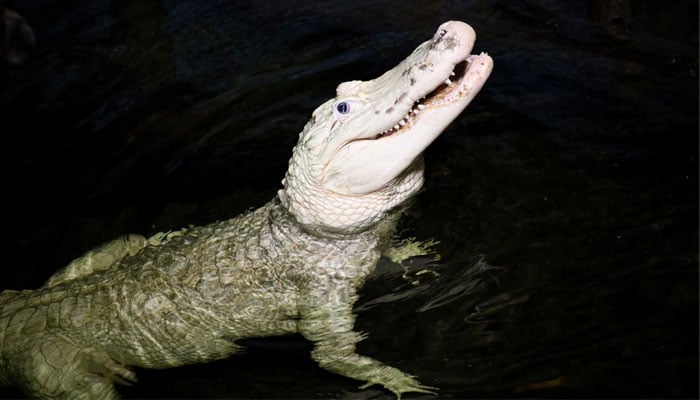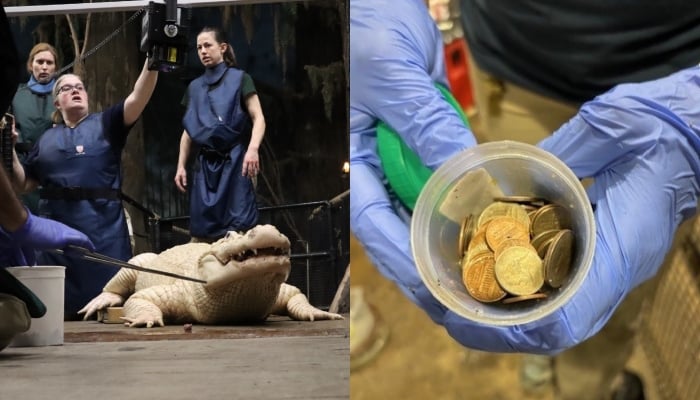Rare 36-year-old leucistic alligator with transparent white skin and blue eyes had a publicised surgery  Image of Thibodaux a rare 36-year-old leucistic alligator with transparent white skin and blue eyes at Henry Doorly Zoo and Aquarium. — Facebook/@Omaha's Henry Doorly Zoo and Aquarium
Image of Thibodaux a rare 36-year-old leucistic alligator with transparent white skin and blue eyes at Henry Doorly Zoo and Aquarium. — Facebook/@Omaha's Henry Doorly Zoo and Aquarium
A rare 36-year-old leucistic alligator with transparent white skin and blue eyes had to undergo surgery after veterinarians found 70 coins in the reptile's stomach, BBC reported.
Thibodaux, one of the 10 American alligators at Henry Doorly Zoo and Aquarium in Nebraska, underwent a publicised surgical procedure to remove the coins "before they caused any problems" and show visitors how tossing coins in the zoo's waters could impact marine creatures.
The visitors snapped photographs as the vets extracted the money out of the alligator's stomach in the Desert Dome.
After removing a sizable quantity of change from the animal's stomach, the zoo advised guests not to toss "coins into any bodies of water at the zoo."
 Thibodaux undergoing surgery and the coins are extracted from him. — Facebook/@Omaha's Henry Doorly Zoo and Aquarium
Thibodaux undergoing surgery and the coins are extracted from him. — Facebook/@Omaha's Henry Doorly Zoo and Aquarium
Associate veterinarian Christina Ploog, who oversaw the treatment, said in a statement that Thibodaux was "anaesthetized and intubated to allow us to safely manage him during the procedure with the help of his training."
"A plastic pipe was placed to protect his mouth and safely pass the tools used to access the coins, such as a camera that helped us guide the retrieval of these objects."
The zoo released a statement stating that "Thibodaux recovered well from the procedure" and that "X-ray imaging confirmed that the objects were successfully removed."
The zoo's head of animal health, Taylor Yaw, stated that the process is not "common."
People are unaware of the harm that coins may bring to animals, Ploog told a local news source. She warned that the coins may contain hazardous substances in addition to being ingested by animals.
One concerned internet user inquired about whether the zoo had picked up the coins.
The zoo responded on Facebook, "We do routine cleanings in the habitats of this area and throughout the zoo. In-between cleanings is when our alligators still manage to get them before they are removed."












